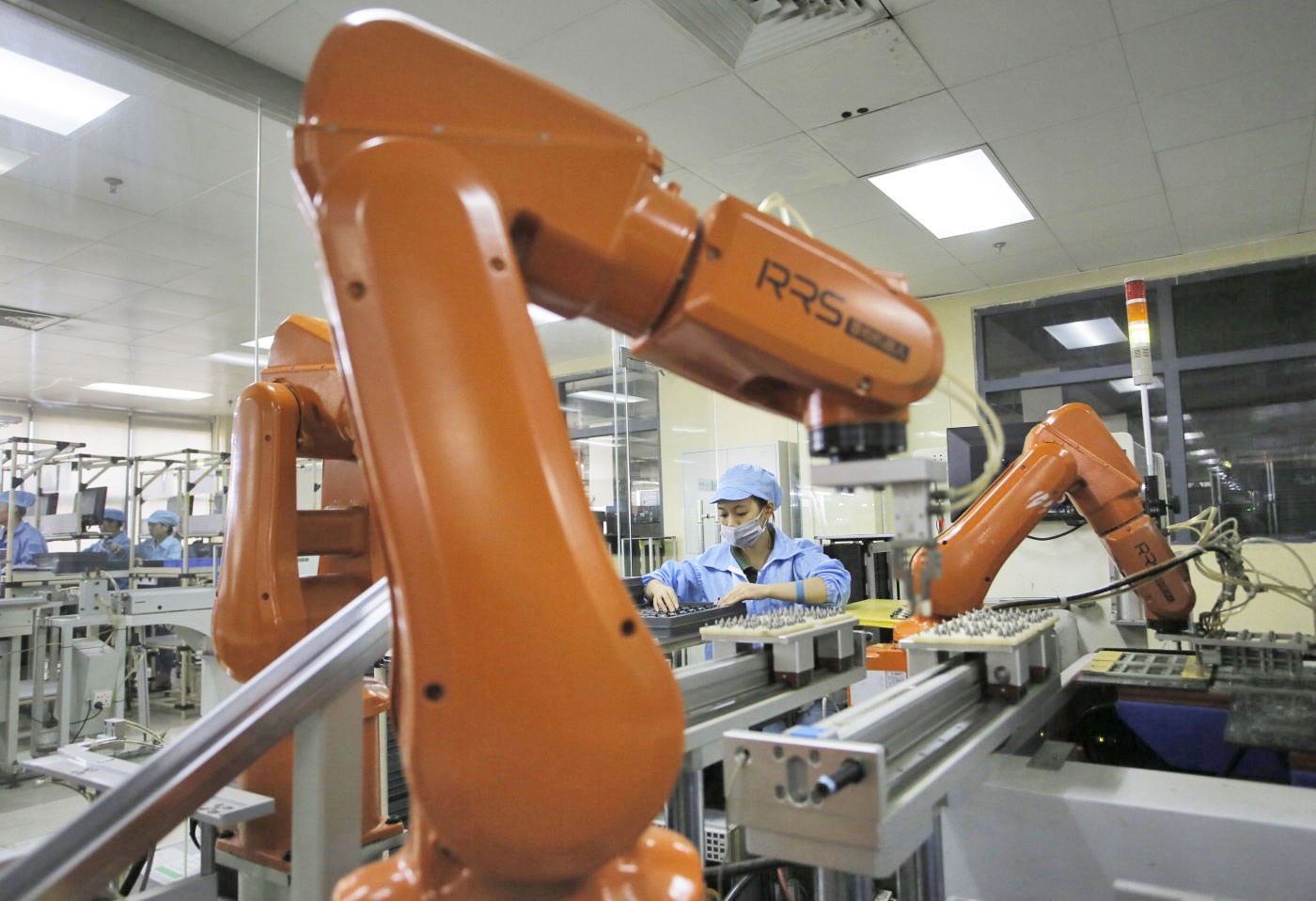
Foxconn, the world’s largest electronics manufacturer, has just replaced 60,000 of its factory workers with robots. According to the South China Morning Post, the workforce was trimmed from 110,000 to 50,000 to cut down on labor cost. Foxconn manufactures Apple iPhone and iPad, Samsung’s Galaxy smartphone line, and Sony PlayStation 4, to name but a few of the high-profile devices.
With China heavily investing in robotic automation, the move comes as no surprise; Xu Yulian, government head of publicity for the Kunshan Jiangsu province, expects more companies are likely to follow suit. But in this case, robotic automation doesn’t allegedly mean fewer jobs for the human workforce.
Speaking with the BBC, Foxconn Technology Group affirmed that it was only automating many of the “repetitive tasks previously done by employees,” while reshuffling employees into more valuable roles in the manufacturing process, related to things like R&D and quality control. “We will continue to harness automation and manpower in our manufacturing operations, and we expect to maintain our significant workforce in China.”
Economists are not convinced, issuing dire warnings about automation’s effect on the world economy. A report jointly conducted by Deloitte and Oxford University suggests that 35% of jobs are at risk of replaced within the next 20 years, especially now that the declining cost of robotics makes it increasingly favorable to purchase robots rather than retain human workers. In places like the United States, automation is believed to be driven by business’ increased pressure to adopt the minimum-wage increase to $15 an hour. “It's cheaper to buy a $35,000 robotic arm than it is to hire an employee who is inefficient, making $15 an hour bagging French fries,” said Former McDonald's chief executive Ed Rensi.
On the contrary, automation proponents suggest that the first jobs to be eliminated will be those unfavorable to human workers, and that move will create new, and more valuable long term opportunities. Foxconn is especially infamous for its poor factory conditions and high employee suicide rate.
But as of last year, the move toward automation is playing out faster in East Asia: 35 Taiwanese companies—including Foxconn—have invested 4 billion Yuan (approximately $609 million USD) on artificial intelligence. These companies employ tens of thousands of people within 505 factories located along Kunshan, the province known as the manufacturing hub of the electronics industry. The South China Morning Post reports that two-thirds of working population are migrant workers.
Source: BBC
Advertisement
Learn more about Electronic Products Magazine





